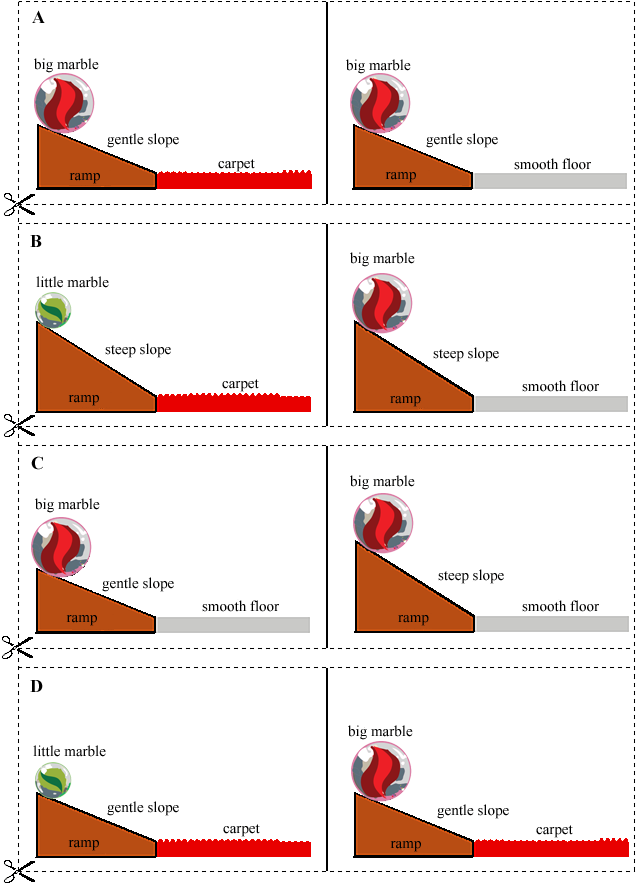Diagnostic and formative information:
|
Question
|
Answer
|
|
Will a big marble or a small marble roll further?
|
D
|
|
Will a marble roll further down a steep slope, or a gentle slope?
|
C
|
Research suggests that students can recognise "fair tests" before they are able to produce these independently. Many students can "do" more than they can talk about. They find it difficult to say why a test is "fair" or not. This is more obvious at Year 4 than Year 8. Providing younger children with opportunities to select fair tests during assessment might allow them to better display their developing skills (Hipkins and Kenneally, 2003).



